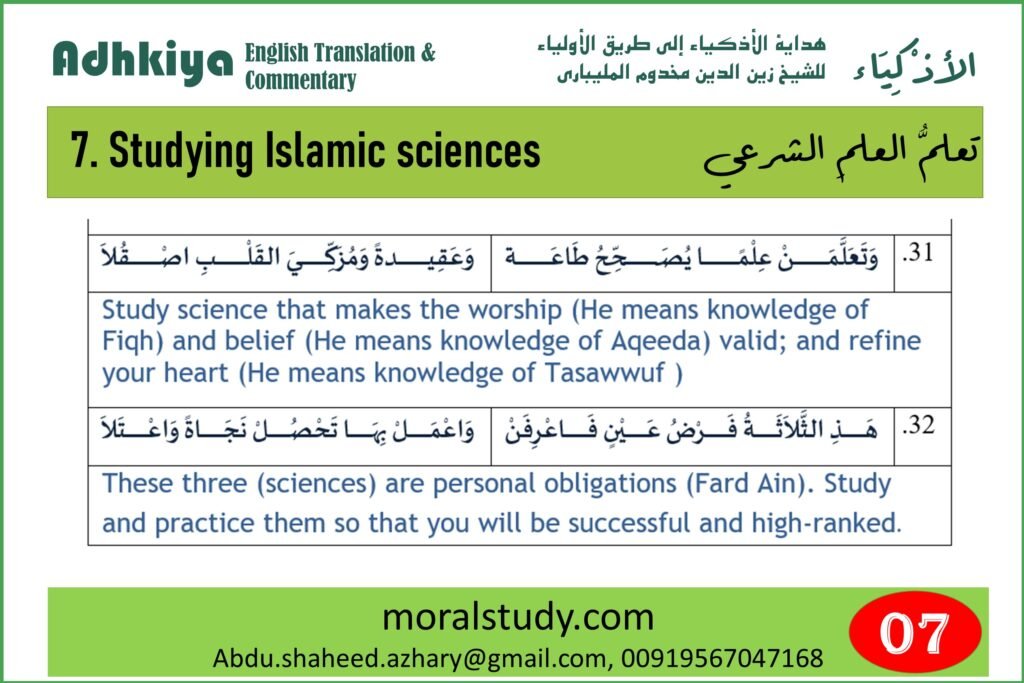Muslim reported as follows:
Umar ibn al-Khattab reported:
We were sitting with the Messenger of Allah, r, one day, a man appeared with very white clothes and very black hair. There were no signs of travel on him and we did not recognize him. He sat in front of the Prophet, rested his knees by his knees, and placed his hands on his thighs.
The man said, “O Muhammad, tell me about Islam.”
The Prophet said, “Islam is to testify there is no God but Allah and Muhammad is the Messenger of Allah, to establish prayer, to give charity, to fast the month of Ramadan, and to perform pilgrimage to the House if a way is possible.”
The man said, “You have spoken truthfully.” We were surprised that he asked him and said he was truthful.
He said, “Tell me about faith.”
The Prophet said, “Faith is to believe in Allah, His angels, His Books, His Messengers, the Last Day, and to believe in providence, its good and its harm.”
The man said, “You have spoken truthfully. Tell me about excellence.”
The Prophet said, “Excellence is to worship Allah as if you see Him, for if you do not see Him, He surely sees you.”
The man said, “Tell me about the final hour.”
The Prophet said, “The one asked does not know more than the one asking.”
The man said, “Tell me about its signs.”
The Prophet said, “The slave-girl will give birth to her mistress and you will see barefoot, naked, and dependent shepherds compete in the construction of tall buildings.”
Then, the man returned and I remained.
The Prophet said to me, “O Umar, do you know who he was?”
I said, “Allah and His Messenger know best.”
The Prophet said, “Verily, he was Gabriel who came to teach you your religion.”
According to this Hadith, there are three dimensions a Muslim has to study and practice ; otherwise, he will not be a perfect Muslim and will not be a perfect Muslim.
They are:
1. Iman: It is related to the beliefs of a Muslim.
He should believe in Allah, Prophets, Angels, Books, Day of Judgement etc.
The scholars studied and authored many books on this topic. Later, the branch of knowledge that would study Iman was known as the science of Aqeeda.
2. Islam: Here Islam refers to the outward physical actions of a Muslim such as five times (Ramadan fasting, Zakat etc.) The branch of knowledge that discusses the actions of a person is called Fiqh.
3. Ihsan: It means to purify the heart from all kinds of bad characters.
Many scholars have done thorough research on this topic. A new branch of knowledge known as Tasawwuf was developed later on.
For a person to be a perfect Muslim, all three dimensions need to exist in him. For example, prayer (Salaat) is considered in Fiqh as ‘accepted’ if one fulfills its conditions and obligatory elements, even if the person prayed with the intention of showing off. Meanwhile, he is not rewarded for such prayers in the hereafter. Here comes the role of Tasawwuf that trains his heart on how to be sincere while praying.
However, if one prays without any belief in his heart, his actions are invalid.
Shiekh Zainudin here says that studying these three basic branches of knowledge: Aqeeda (Islamic theology), Fiqh (Islamic jurisprudence) and Tasawwuf (Islamic mysticism) is the Fard Ain or personal obligation of every Muslim.
